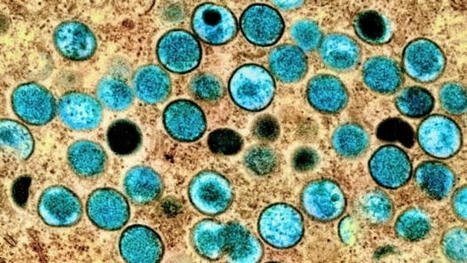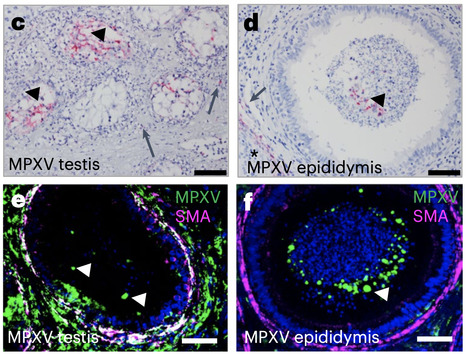A new lineage of the mpox virus linked to efficient human-to-human transmission has been identified in the Democratic Republic of the Congo (DRC) — and the researchers behind the finding are calling for swift action to 'avert another global mpox outbreak.'
A team of Canadian and international scientists working on the ground in DRC began tracking a large mpox outbreak in the country's Kamituga mining region last year. From October 2023 onward, cases spread rapidly with more than 240 suspected infections identified within five months. Out of roughly 100 confirmed cases, a third were among sex workers, the team wrote in their latest paper. Mpox — previously known as monkeypox — burst onto the global landscape in 2022, spreading to dozens of countries through sexual networks that largely impacted men who have sex with men. Infections can lead to painful lesions and, in more severe cases, sepsis, lung nodules and even death. Genomic analysis of the recent Kamituga outbreak uncovered what lead researcher Dr. Placide Mbala-Kingebeni calls an "alarming" finding: a new, distinct clade Ib lineage of the mpox virus featuring mutations that are a hallmark of efficient transmission between humans. Mbala-Kingebeni's findings were published online this week as a pre-print, meaning the research has not yet been peer-reviewed.
The researchers say the ongoing situation in Kamituga echoes the 2017 to 2018 outbreak of clade IIb mpox in Nigeria, which is now widely considered a harbinger to the unprecedented global spread of the disease a few years later. Mbala-Kingbeni told CBC News the worldwide spread of mpox in 2022 involved a form of the virus that's thought to cause less severe disease, though some scientists warn underreporting of cases makes it tricky to know the precise differences between each clade. (Clades are subtypes of a virus that arise from a common ancestor. In the case of mpox, the two main clades identified so far are clade I and clade II.) "There is a high risk that this more virulent clade, that's more adapted to human-to-human transmission ... can be transmitted silently from one person to another and be sustained at a global level," added Mbala-Kingbeni, an associate professor at the University of Kinshasa and head of epidemiology and global health at the DRC National Institute of Biomedical Research's Clinical Research Center. Urgent measures are needed — including expanded surveillance, contact tracing and targeted vaccination efforts — to contain this "pandemic-potential" outbreak, the researchers wrote.
Ongoing DRC outbreaks 'alarming'
The team's concern stems, in part, from Kamituga's demographics. The densely-populated region lacks healthcare infrastructure to handle a large-scale outbreak, and the researchers believe the reported cases are likely an underestimate. It's also a travel hub, with large amounts of movement between the region and neighbouring countries in Africa, such as Rwanda and Burundi, including sex workers who "frequently return to their countries of origin." "The highly mobile nature of this mining population poses a substantial risk of outbreak escalation beyond the current area and across borders," reads the paper. Toronto-based infectious diseases specialist Dr. Isaac Bogoch, who was not involved in the research, praised the team for showing a "subtle but real" genetic difference in the mpox virus samples from Kamituga. The research further raises alarms about the record-breaking levels of mpox circulating in DRC, he added, and the country's lack of vaccines or therapeutics to contain the spread of the virus. But he cautioned against over-interpreting the results, saying the findings don't prove this new lineage is even more transmissible than before or capable of evading existing treatments and vaccines. Further research is needed, Bogoch stressed, to better understand a virus that's causing massive outbreaks in Africa and is still quietly circulating locally in Canada as well — with more than 20 cases reported in Toronto alone so far this year. The study also doesn't change the existing possibility that a different lineage of mpox could eventually jump internationally, Bogoch added. "Without this mutation we would have this exact same conversation," he said. "The alarming part to me is we know there's an ongoing outbreak in [DRC], and we still don't have a coordinated global response."
Preprint of the study available in medRxiv (April 15, 2024);
https://doi.org/10.1101/2024.04.12.24305195



 Your new post is loading...
Your new post is loading...








